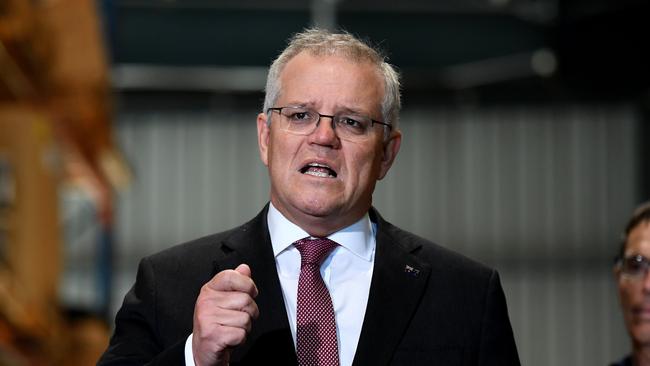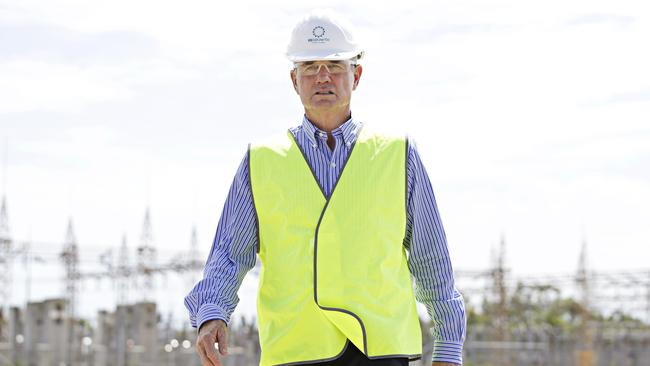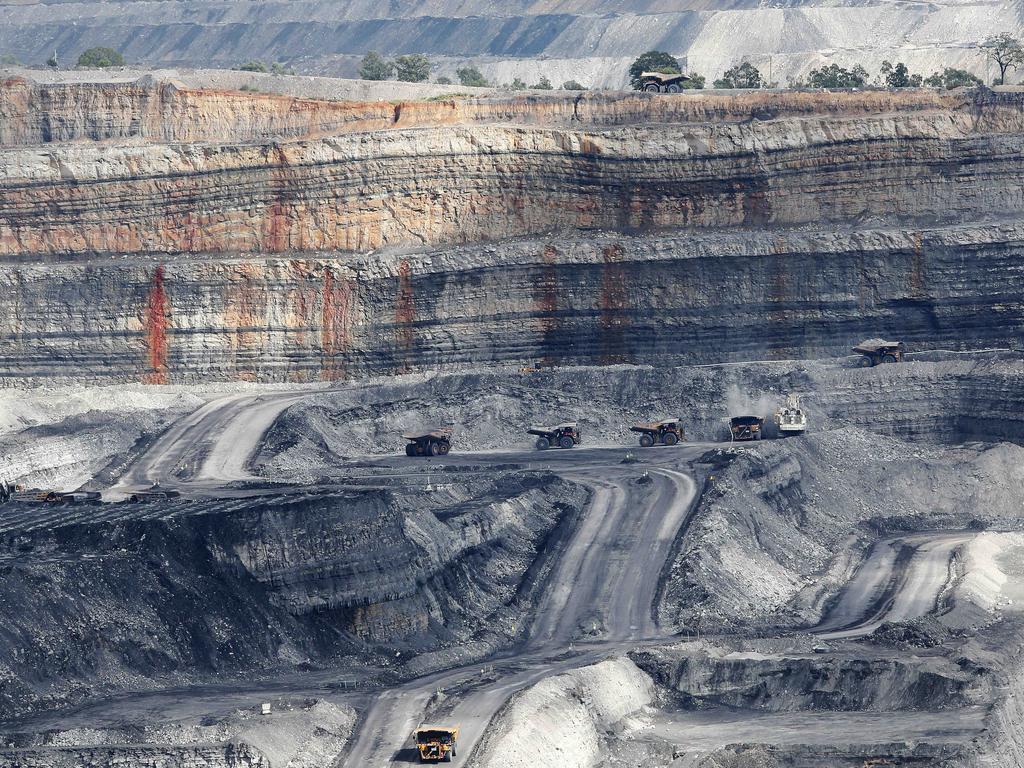PM steps in to keep power prices down and the lights on
The PM will back a 660 Megawatt gas plant in the Hunter Valley to offset the closure of the Liddell coal-fired power station in 2023.

Scott Morrison will intervene in the energy market by backing a 660 Megawatt gas power plant in the Hunter Valley to offset the closure of the Liddell coal-fired power station in 2023 and avoid a 30 per cent power price hike for consumers.
The government-owned Snowy Hydro will build the open cycle gas turbine, underwritten by a $600m equity investment from the commonwealth, in a bid to ensure 1000MW can be pumped into the National Electricity Market by the summer of 2023-24.
The project, forecast to create 600 jobs during construction and 1200 indirect jobs across the state, comes after the Prime Minister last year set the private sector a target to reach final investment decisions on replacement dispatchable capacity by April 30.
Energy Minister Angus Taylor, who will announce the gas plant in Kurri Kurri on Wednesday ahead of Saturday’s Upper Hunter state by-election, said the investment was “responsible”, with strong returns expected.

“We were very clear from the start — we will not stand by and watch prices go up and the lights go off. This project will deliver flexible gas generation to replace Liddell and maintain reliable power alongside Australia’s world-leading investment in renewables,” he said.
The Snowy Hydro project, expected to begin major construction by February next year, will combine with EnergyAustralia’s 316MW Tallawarra B open cycle gas plant and the Mount Piper 30MW coal plant upgrade to hit the 1000MW target.
Construction of the Hunter Power Project and Tallawarra B gas plant will support more than 2000 direct and indirect jobs, with the government spending $25m to ensure new gas power stations are equipped with hydrogen-ready turbines.
Mr Taylor said cheap power was critical for job-creating industries and “keeping prices low”, with gas supporting the manufacturing sector, which employs more than 900,000 workers.
The decision to back the Kurri Kurri gas plant will avoid a repeat of the Hazelwood power station closure, which increased prices by up to 85 per cent and sparked reliability issues in Victoria.
Mr Morrison’s call for a gas-fired recovery last year coincided with AGL announcing it would replace the 1680MW Liddell Power Station with a giant battery park and deciding on only one dispatchable generation upgrade before the government’s deadline — a 100MW addition to the existing Bayswater plant. No new dispatchable power plant has been built in NSW in more than a decade.
Independent modelling for the government’s Liddell Taskforce showed that if the power station were not replaced, NSW average wholesale prices could rise from the low $60 a megawatt hour in 2022 to about $80 a MWh in 2024 and continue increasing to $105 a MWh by 2030.
Major site preparation for the Hunter Power Project is under way and the gas plant will have capacity to run hydrogen blends.
AGL last year revealed its plans to convert its Liddell coal power station into a 500MW battery park. The future of the half-century old Liddell coal plant, which provides 10 per cent of the state’s power, has been politically contentious for several years, with Coalition governments urging AGL to delay its closure or sell it to other suitors that would invest in its extension.
The Morrison government’s ramping up of infrastructure in the Hunter Valley comes as the Coalition prepares to target Labor-held seats at the next election, including Shortland and Paterson, where the Kurri Kurri plant is located.
The Australian understands there are fears within Labor that the party is preparing to soften its support for the gas sector, as it comes under pressure from green groups over growing international climate ambitions.
Labor frontbencher Murray Watt told caucus last week that Labor would push amendments to the government’s Northern Australia Infrastructure Facility reforms because environmental activists were concerned it would be used to fund gas development in the Beetaloo Basin, according to sources in the room.
This is despite an internal pro-gas agreement struck by Labor’s shadow cabinet last year, as Anthony Albanese moved to stem internal warfare between Joel Fitzgibbon and Mark Butler.
The “statement of principles” agreement said Labor would support “sensible measures” to expand the gas network if it were in the national interest.
The amendments pushed by Labor in the Senate, which failed, included a requirement for NAIF investments to meet a rate-of-return in line with the Clean Energy Finance Corporation, with some Labor MPs saying this would make it harder for the investment vehicle to fund gas.
Responding to questions from The Australian, Senator Watt said Labor’s NAIF amendments were supported by the Australian Petroleum Production and Exploration Association and the Australian Pipeline and Gas Association. “Labor voted against numerous amendments moved by the Greens party, which sought to prevent the NAIF from investing in job-creating projects in northern Australia,” he said.
Mr Taylor on Tuesday challenged Mr Albanese to support an expanded remit for the Australian Renewable Energy Agency, as the government seeks to wedge Labor on climate change despite shifting towards zero-emissions.
“We need to get more horses in the race. These changes are about bringing a portfolio of technologies to commercial parity so we can reduce emissions across every sector of the economy, without killing jobs,” Mr Taylor told The Australian.
“It’s time Anthony Albanese and Chris Bowen walk the talk on clean jobs and support commonsense changes like this. The alternative to the government’s approach is more taxes and that’s Labor’s track record in this space.”
From Wednesday, a new regulation will take effect enabling ARENA to invest in carbon-capture and storage technologies and hydrogen that is made from gas. Mr Albanese last year said Labor would not support ARENA and the CEFC being used to fund carbon-capture technology.
Mr Albanese, who has been criticised by colleagues for not being vocal enough in support of the resources sector, has been in Queensland this week talking up the future of green energy.







To join the conversation, please log in. Don't have an account? Register
Join the conversation, you are commenting as Logout